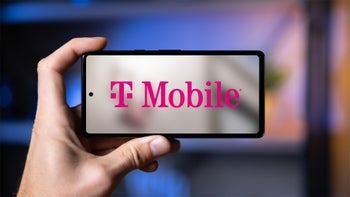T-Mobile, Verizon and AT&T under fire for lack of transparency on surveillance [UPDATED]
Sen. Ron Wyden says the big three didn't notify lawmakers as required – even on possible White House orders.

Update from May 28, 2025:
AT&T says that since the start of its current contract with the Senate, which began last June, it has not received any legal demands involving Senate offices. The company also emphasized that it is fulfilling all of its responsibilities as required under its agreement.
We are complying with our obligations to the Senate Sergeant at Arms. We have received no legal demands regarding Senate offices under the current contract, which began last June.
– AT&T, May 2025
The original story from May 27, 2025 follows below:
In a letter sent to other lawmakers, Wyden revealed that the three carriers hadn't been notifying senators about government surveillance requests, even though their contracts with the Senate require them to do so.
His staff's investigation found that AT&T, T-Mobile and Verizon failed to alert senators when legal surveillance requests came through – including those possibly from the White House. According to the letter, all three carriers are now saying they've fixed the issue for Senate-funded phone lines.
An investigation by my staff revealed that until recently, Senators have been kept in the dark about executive branch surveillance of Senate phones, because the three major phone carriers — AT&T, Verizon, and T-Mobile — failed to establish systems to notify offices about surveillance requests, as required by their Senate contracts. While now rectified for Senate-funded lines, significant gaps remain, especially for the campaign and personal phones used by most Senators.
– Sen. Ron Wyden, May 2025
Right now, AT&T and Verizon will only provide notice of surveillance if it's tied to a Senate-issued line. T-Mobile, on the other hand, has agreed to also notify senators about surveillance involving personal and campaign devices.
This all comes as Wyden is now pushing for new rules in the legislative branch appropriations bill to help protect lawmakers' personal devices with government-backed resources. Back in 2019, Wyden and Sen. Tom Cotton (R-Ark.) tried to pass legislation addressing similar concerns after the 2016 election and foreign hacking threats, but that bill never made it out of committee.
Technically, government surveillance of lawmakers can be legal in some cases, but Wyden argues it puts democracy at risk if members of Congress feel they're being watched and can't legislate freely.
We've reached out to T-Mobile, Verizon and AT&T for a comment and will update the story when we have a response.
Follow us on Google News














Things that are NOT allowed:
To help keep our community safe and free from spam, we apply temporary limits to newly created accounts: